Today's Tidbit... Football and Archaic Language
Words are good. Words written during football's early years are sometimes better. We understand the words despite word choices and phrasing that differ from how we speak and write today. Here’s a collection of little stories from the pre-forward pass era that include entertaining word choices.
Some early writing uses a grander style than today. Other times, they use terms whose common meaning has shifted a bit. Take, for example, the short article below about holiday services at a Massachusetts prison in 1878, particularly the prisoners' choice of activities in the yard.
From the beginning, football has been decried as a dangerous game, though the inherent danger has been part of its attraction for players and spectators. Even in 1883, before American football entered its mass play phase, they described it as "the most fruitful of any game of ball of severe injuries in the form of rupture and of broken, dislocated, and sprained limbs."
None of those scare tactics about injuries kept Eugene Richards off the field. Richards, Yale's captain in 1884, finished his career tying Princeton at the Polo Ground on Thanksgiving Day, having gone undefeated all four years.
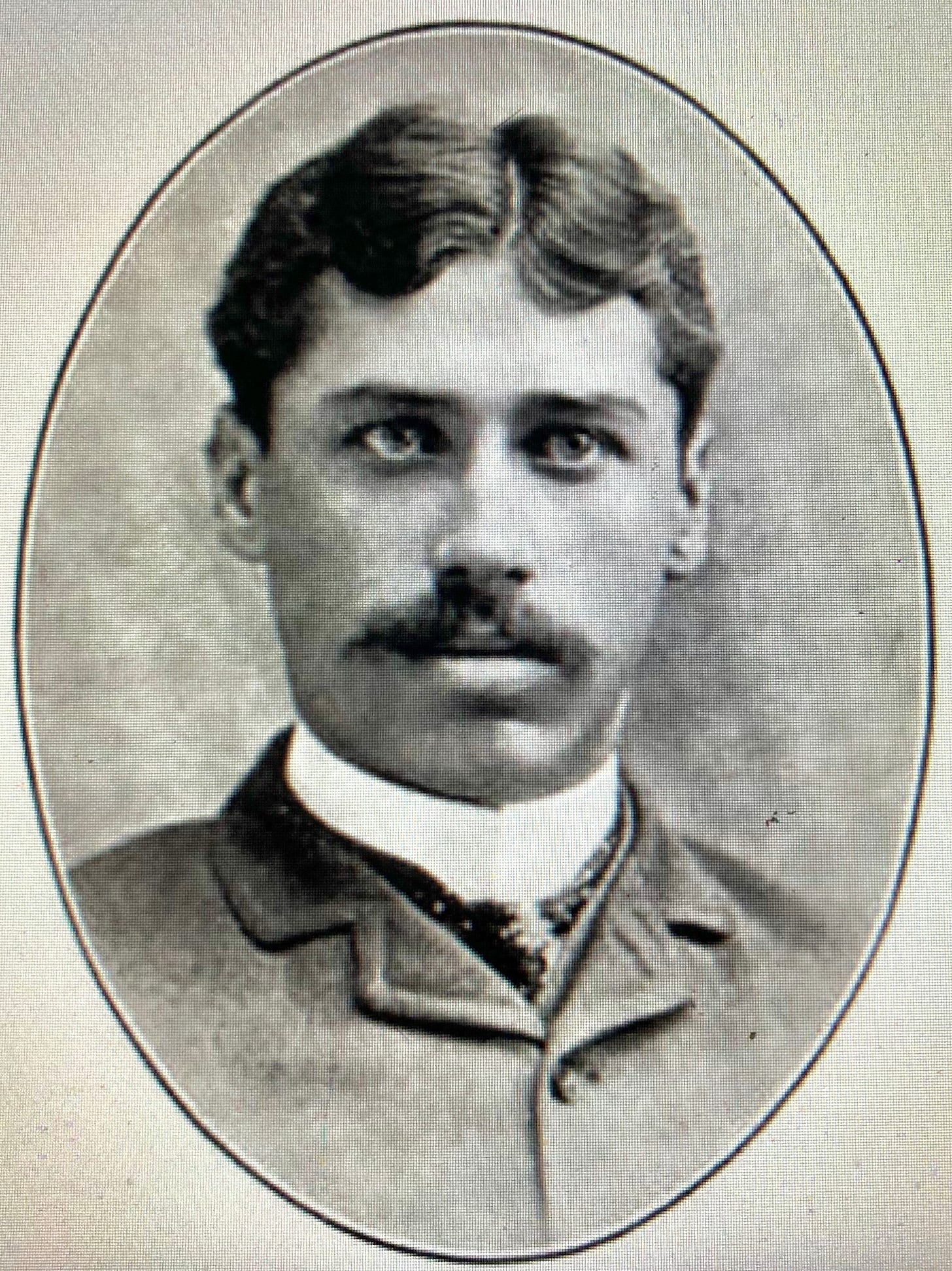
Although Richards was injured during the game and had his leg encased in plaster the next day, he informed the reporter that the game of football was in a good state.
A few folks in Wales might have disagreed with Richards on the wisdom of playing the game. A Welsh Presbyterian congregation censured one of its members for joining a football team (the other kind of football). At the same time, the Glasgow Presbytery denounced the observance of Christmas Day as a Popish abomination. I wanna party with those guys.
Despite the game's danger and villainy, it attracted crowds of spectators from the beginning, who braved foul weather to cheer on their lads. The 1898 Harvard-Yale game in New Haven was such a day. The local newspaper the next day headlined the result in a way not seen in some time before, describing the weather conditions faced by the fans.
Readers may recall a September story, John McClean, who turned around the fortunes of Knox College football in 1901 and 1902 before moving to Missouri and promising to pay his star back at Knox, Henning Akerson, to join him at Missouri. Back then, the Missouri-Kansas Thanksgiving Day game was a key matchup, so when reporters asked about the team's prospects the night before the match, McClean responded as follows:
And a special request for the head coaches who read Football Archaeology and are asked about their fan support: please tell the reporters that your fans have jollied up the boys in great style. Your quote will make all the papers.
If you have examples of flowery language or other descriptions of football we are unlikely to witness again; please pass them along.
Football Archaeology is a reader-supported site. Click here for options on how to support this site beyond a free subscription.


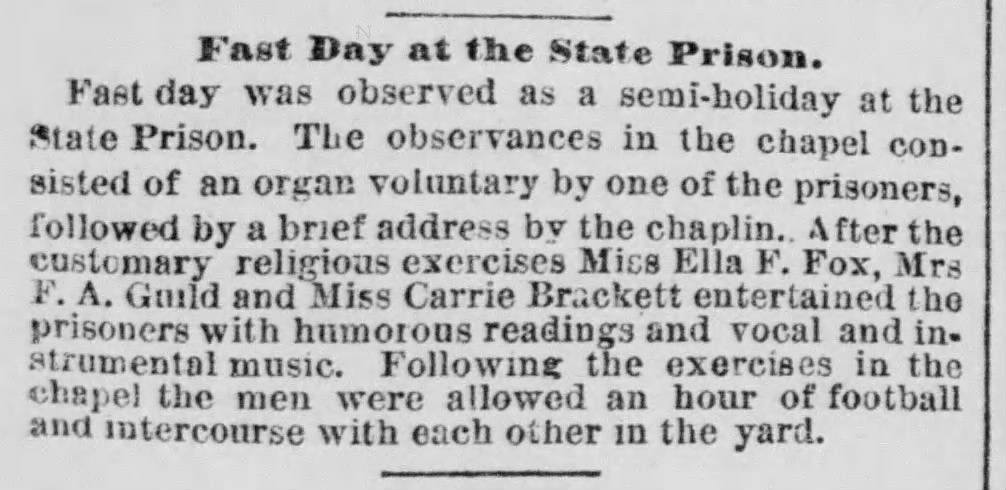
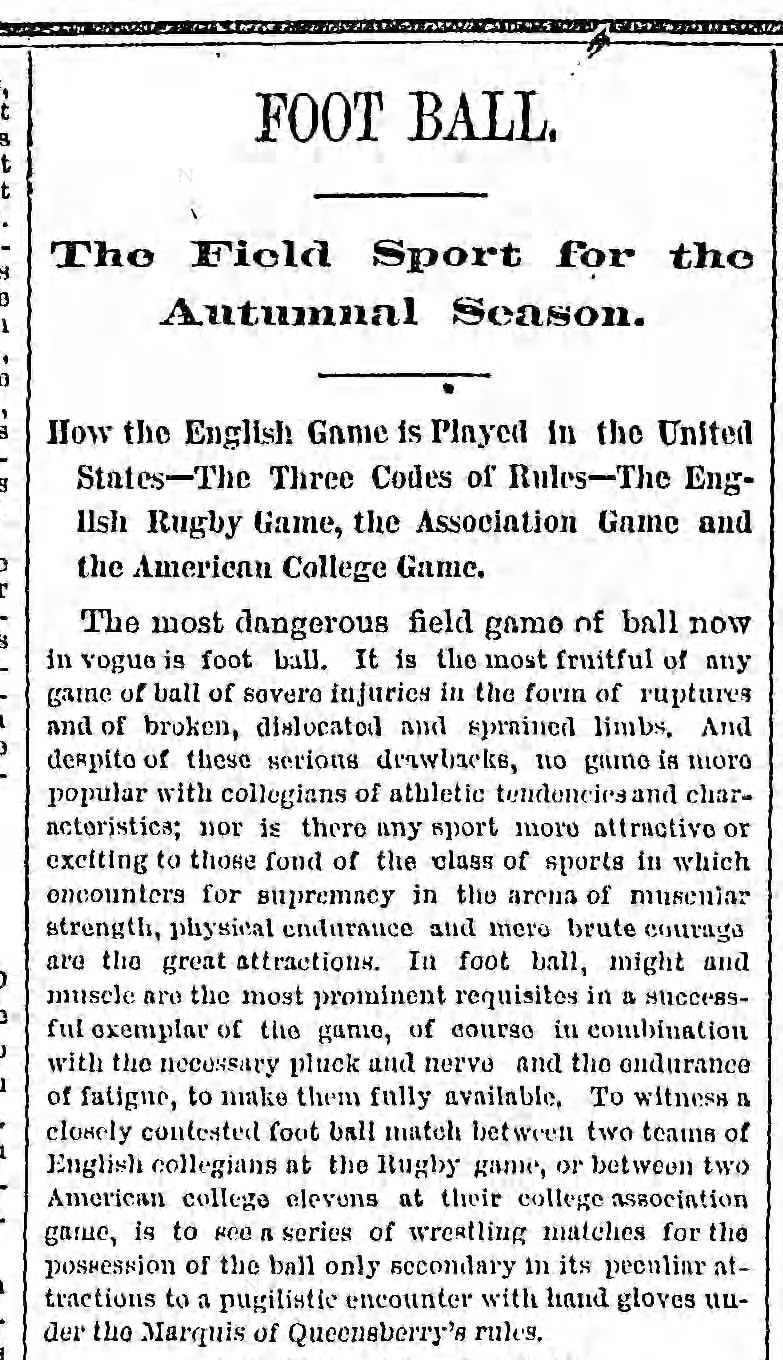
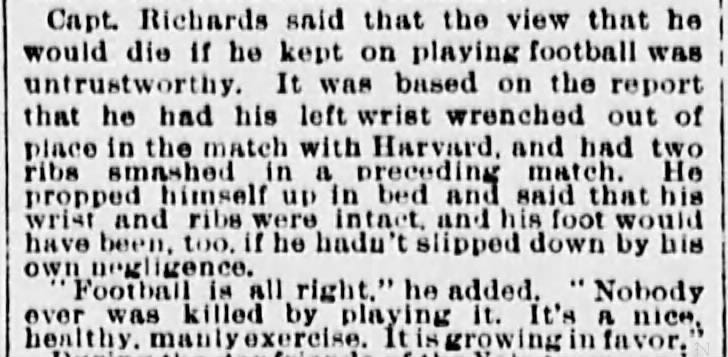
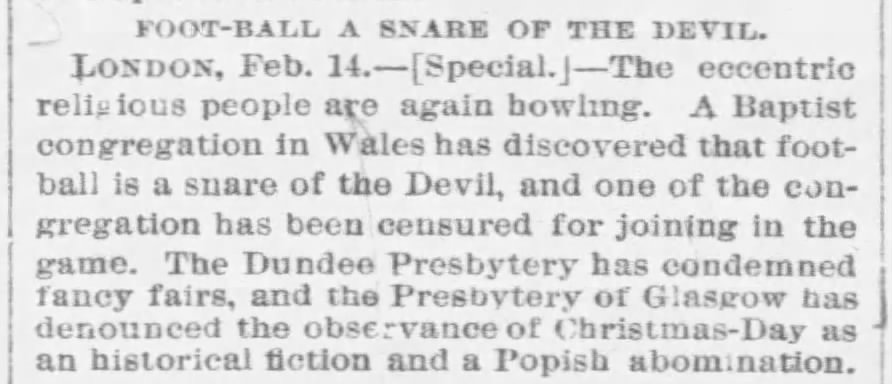
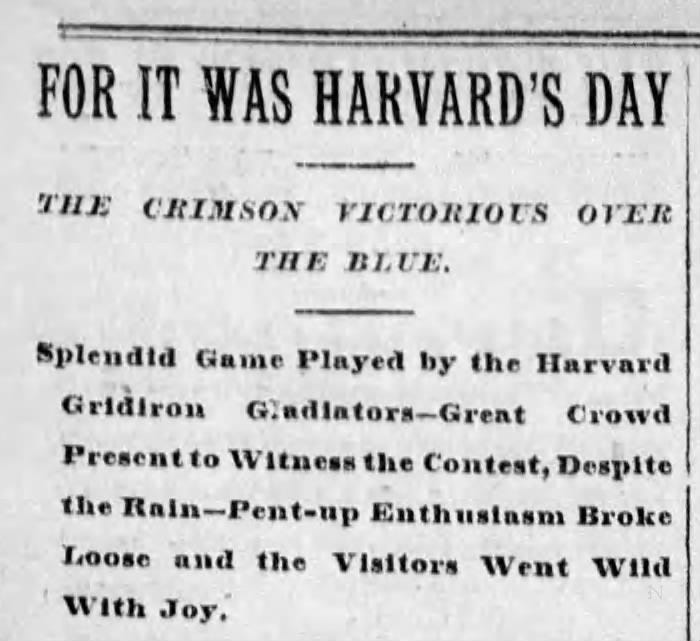

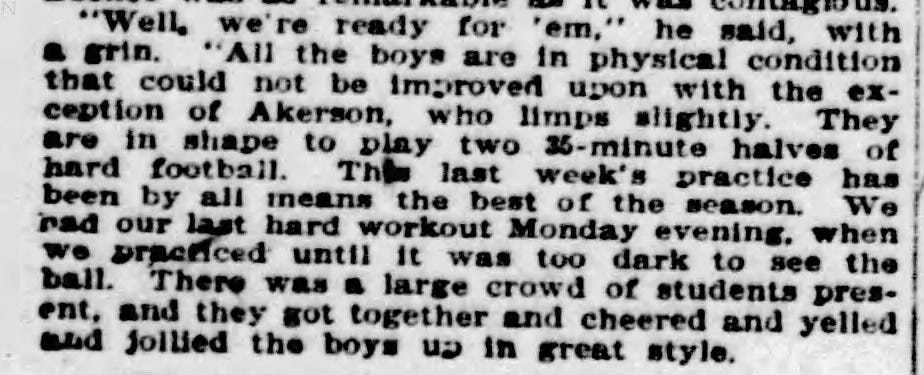
I wish the Hardin Institute and Knox College would merge. The window decal sales would support the place ..
Good Lord, the activities of the prisoners in the first article after church!!